UWTSD staff encourage graduates to go and work in Patagonia
Ever thought about working abroad? Over the years, several staff members from The University of Wales Trinity Saint David have benefited from this experience, and for many Welsh speakers in particular, the place to go is Patagonia (otherwise known as ‘Y Wladfa’).
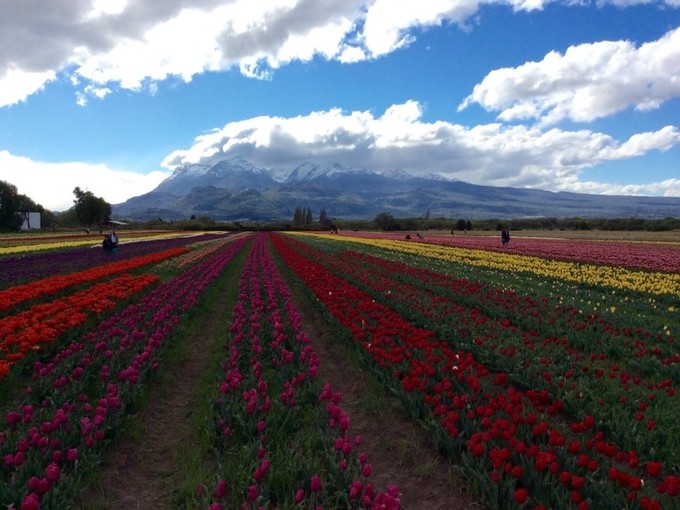
Three current staff members at UWTSD consider their experience of working in Patagonia invaluable, and feel that it has improved their development as individuals. Yr Atom Manager, Caryl Jones, and Rhagoriaith’s lecturers, Rhian Abbott and Eluned Grandis are encouraging others to follow their footsteps.
Lecturer Eluned Grandis decided to return to Trevelin in Patagonia as a Welsh Language Development Officer between 2010-17 after previously visiting Y Wladfa whilst on holiday with her sister. Eluned said:
“I was fascinated by the idea of living and working in Patagonia when chatting to Ann-Marie Lewis (who had already had the experience) in the staff room of Ysgol y Strade, Llanelli where I was working as a French teacher at the time – that was my first job. Years later, having gained experience as a teacher and having been Head of the Faculty of Welsh and on the Department of Modern Foreign Languages in local secondary schools, I decided to go for it!
“Those ten months back in 2010 (and the years following that) were packed full with rich experiences that are too numerous to name here. I was a young secondary teacher at the time with little experience teaching children or older people, but during my time at Y Wladfa, I taught Welsh to young children as young as two years old up to first language speakers in their eighties. I’m now as comfortable singing nursery rhymes with Nursery / Reception children on the carpet as I am discussing intensive grammar or literature with older Welsh learners/speakers. This skill is particularly useful in my role here at the University.”
Eluned found that there is great pride in the communities in their Welsh roots, and during her time there, she loved visiting the elderly and local people and hearing them tell their childhood stories. She also loved to spend time with the younger generation and seeing their tireless efforts to ensure the continuity of the Welsh language.
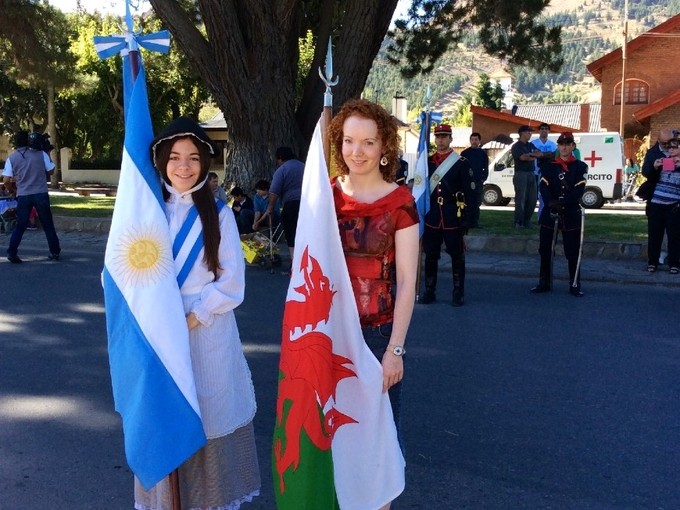
Rhian Abbott worked in Patagonia between 2000 – 2001. She went to work there as a Welsh teacher through the British Council, teaching groups of young adults and children. She decided to take the opportunity as it offered many advantages.
She said
“Working in Y Wladfa certainly enriched my life. I had the opportunity to spend time with very special people; learn a little Spanish; understand more about South American culture and history; enjoying new habits and foods, and trying unforgettable things, like white water rafting and glacier climbing
“Everyone was so enthusiastic, and many managed to pick up the language very quickly. I was also responsible for arranging social events through the medium of Welsh. It was a great opportunity to gain valuable experiences such as hosting weekly programmes on the local radio station; arranging walking and reading clubs; helping organise ‘Nosweithiau Llawen’ concerts; and trying to teach a folk dance group.”
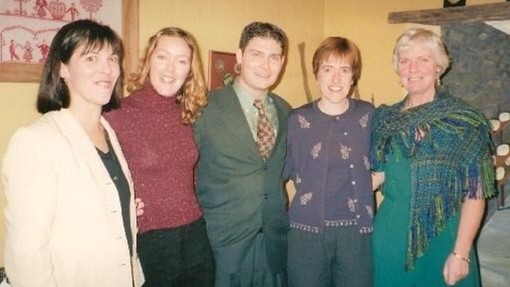
(A crew of teachers on the occasion of welcoming Rhodri Morgan, then First Minister of Wales, to Patagonia. Rhian is 4th from left)
Caryl Jones had the opportunity to work as a teacher in Ysgol Gymraeg y Gaiman between February and May 2020 – although the intention was to stay there for a year, covid struck and she had to return home.
“I saw the post advertised on social media and thought to myself that this was too good an opportunity to miss, the time was right and I was ready for a different adventure and experience within the world of education.”
Although Caryl returned to Wales she was still teaching the children remotely and succeeded to do this for the remainder of the year. She adds:
“The experience was amazing. I think one of the biggest things I’ve learned whilst I was out there was to enjoy every day, and appreciate the little things in life. I’ve continued to keep in touch with a number of school staff after I left and it’s been lovely to assist them with various resources. I feel the experience has developed me to be more independent and gave me the confidence to take risks within the world of work.”
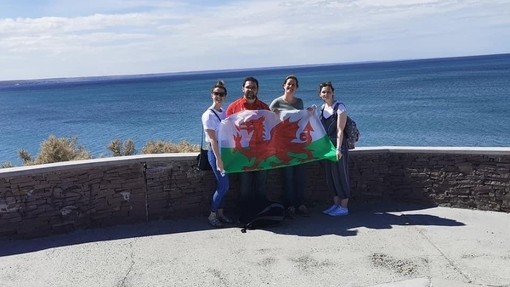
As the three look back on their experience in Patagonia, they are certainly encouraging others to do the same.
Rhian said:
“I’m so glad I went there in my twenties, before ‘settling’ and buying a house. Make the most of your freedom to take risks. During your time in Y Wladfa, you will create the best memories of your life. There’s nothing to lose and everything to gain.”
Caryl adds:
“Go! It will be an eye-opener and an unforgettable experience for you and you will definitely not regret it. The schools are lovely and a good team of staff there who are very supportive and give you a good opportunity to develop as a teacher.”
For Eluned:
“Living and working in Y Wladfa is an incredibly rewarding and unique experience. Indeed, the experience can open doors to all sorts of opportunities and would certainly look very good on a CV when looking for a job back in Wales.
“There is a real sense of enthusiasm among young and old and the desire to maintain the language and our traditions. It is very gratifying to think that there is so much contact and toing and froing between Wales and Y Wladfa today. The world is small and life is short, so go for it!”
UWTSD’s International Regional Manager Kath Griffiths said:
“The Welsh first arrived in Patagonia in 1865. They had migrated to protect their native Welsh culture and language. It is more important than ever that the next generation travels to Patagonia to protect and cherish this special part of the world.”
Applications for the 2024 placements will be opening again at the end of July 2023, and all the details will be available on the British Council website.
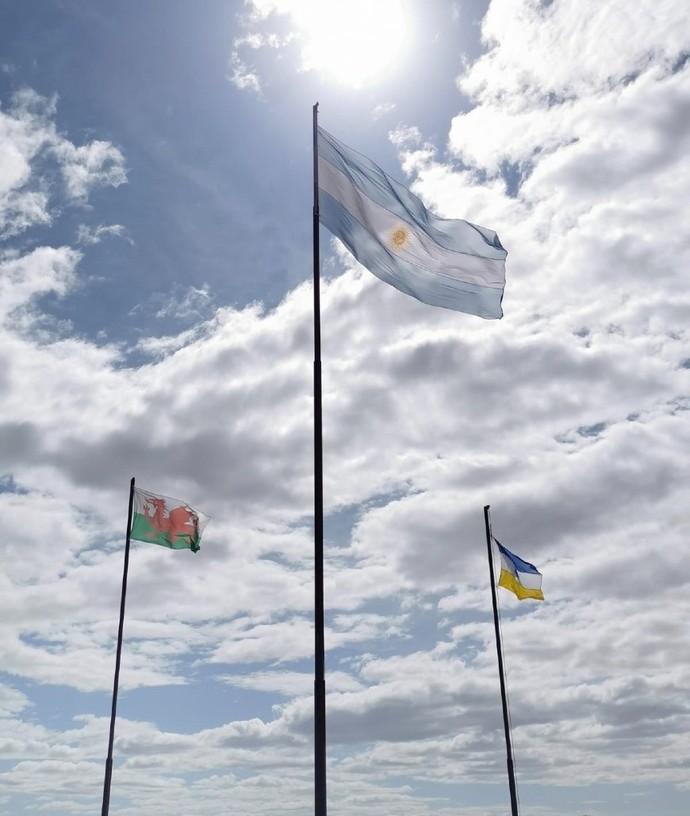
Further Information
Lowri Thomas
Principal Communications and PR Officer
Corporate Communications and PR
Email: lowri.thomas@uwtsd.ac.uk
Phone: 07449 998476
